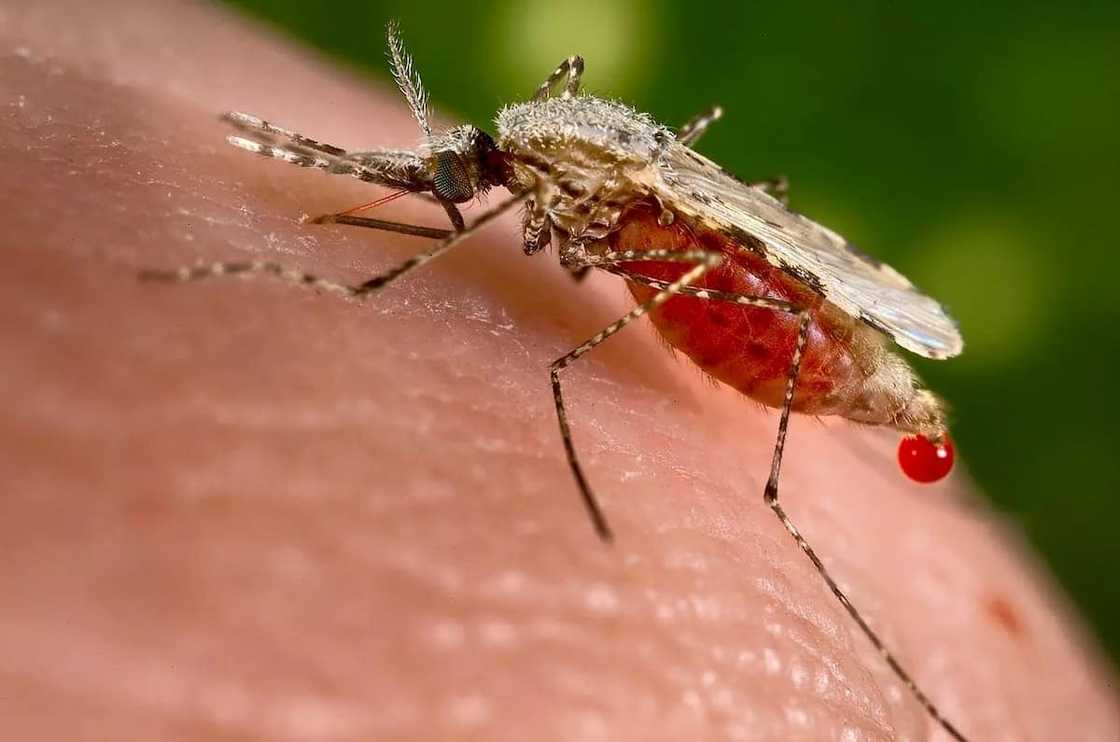Scientists discover microbe that could stop Malaria transmission
- A microbe discovered by researchers in Kenya may provide a safe biological way of fighting malaria
- It is believed the microbe, or bug, which is found in mosquitoes, can stop the transmission of the diseases that kills thousands annually
- They studied mosquitoes infected with the microbe and found that none of them carried the parasite responsible for malaria
- Microsporidia MB is a single-cell bug that lives in a mosquito's gut and genitals, where it produces spores
- It is found in 5% of mosquitoes in a high-risk region around Kenya's Lake Victoria, where the researchers focused their work
PAY ATTENTION: Click “See First” under the “Following” tab to see Briefly.co.za News on your News Feed!
A team of scientists in Kenya has discovered a novel method with significant potential to completely stop mosquitos from transmitting the parasites which cause malaria in humans.
The scientists, most of whom are from Kenya, the UK and one from South Africa were biologists at the International Centre of Insect Physiology and Ecology (ICIPE) in Nairobi.

Source: Facebook
READ ALSO: Kelly Khumalo opens up on ‘divorce’ from sis Zandile: It’s gone legal
Briefly.co.za learned that they discovered Microsporidia MB, a microorganism that lives in a mosquito’s reproductive tract and gut and completely protects the mosquito from being infected with plasmodium, the parasite that causes malaria.
According to a report by Quartz Africa, the study showed the Microsporidia MB reduces the establishment of the Plasmodium falciparum parasite in the guts of the mosquitoes.
The researchers published their findings in the science journal, Nature Communications showing the microbe also impairs the colonization of the salivary glands by the parasite.
Microsporidia are fungi, or at least closely related to them. Like plasmodium, which is protozoans, they are also known to live inside mosquitoes as parasites.
Mosquitoes inject their saliva into the skin to facilitate blood-feeding. Their saliva contains plasmodium, which is usually injected together with the saliva resulting in malaria transmission.
Scientists believe this makes the Microsporidia MB a realistic candidate as an eco-friendly and sustainable strategy to replace harmful mosquito populations with harmless ones.
The hope is that by infecting mosquitoes in a region with Microsporidia they will no longer be able to infect humans with malaria parasites.
"Step two is increasing the levels of the microbe in mosquitoes, which will be the hard part, but it is very encouraging to see how infectious this microbe is," one of the researchers Jeremy Herren said
"Its ability to be spread from a mother mosquito to her offspring is an incredibly powerful feature,' he added.
Herren said the scientists are studying other ways the microbe could spread through the mosquito population, such as releasing spores.
The team of scientists had been studying mosquitoes on the shores of Lake Victoria in Kenya.
This strategy has been demonstrated before in a city in northern Australia where mosquitoes infected with Wolbachia, a bacterium, were deployed on a large scale.
That effectively stopped all outbreaks of dengue fever for more than four years.
In April 2020, the World Health Organization (WHO) reported that progress in the fight against malaria, which kills 400,000 people annually, had stalled.
There had been reports of drug resistance, such as Artemisinin resistance, in several regions and insecticide resistance in 73 countries in 2019.
The new RTS,S malaria vaccine approved in 2015 has low efficacy and only decreased malaria cases by 39% and severe cases by 29% in clinical trials.
The vaccine could only decrease malaria cases by 39% and severe cases by 29% in clinical trials.
This efficacy of the vaccine is low compared to 85% to 95% for most routine vaccines for children. There has been no significant reduction in the annual numbers of malaria cases since 2014.
These have led to concerns that if better methods are not developed to control the disease, the progress that has been achieved so far may be revered.
Enjoyed reading our story? Download BRIEFLY's news app on Google Play now and stay up-to-date with major South African news!
Source: Briefly News

